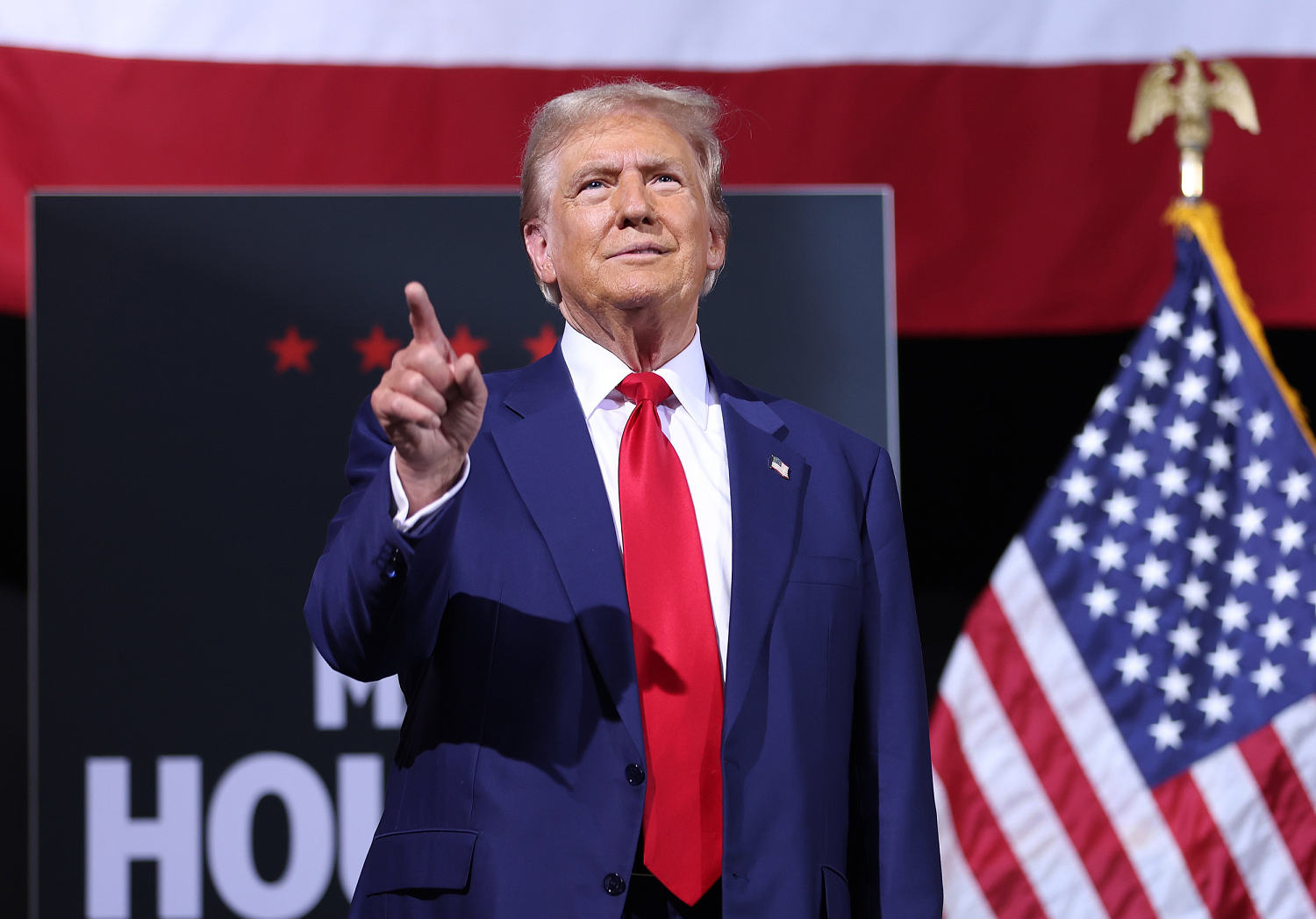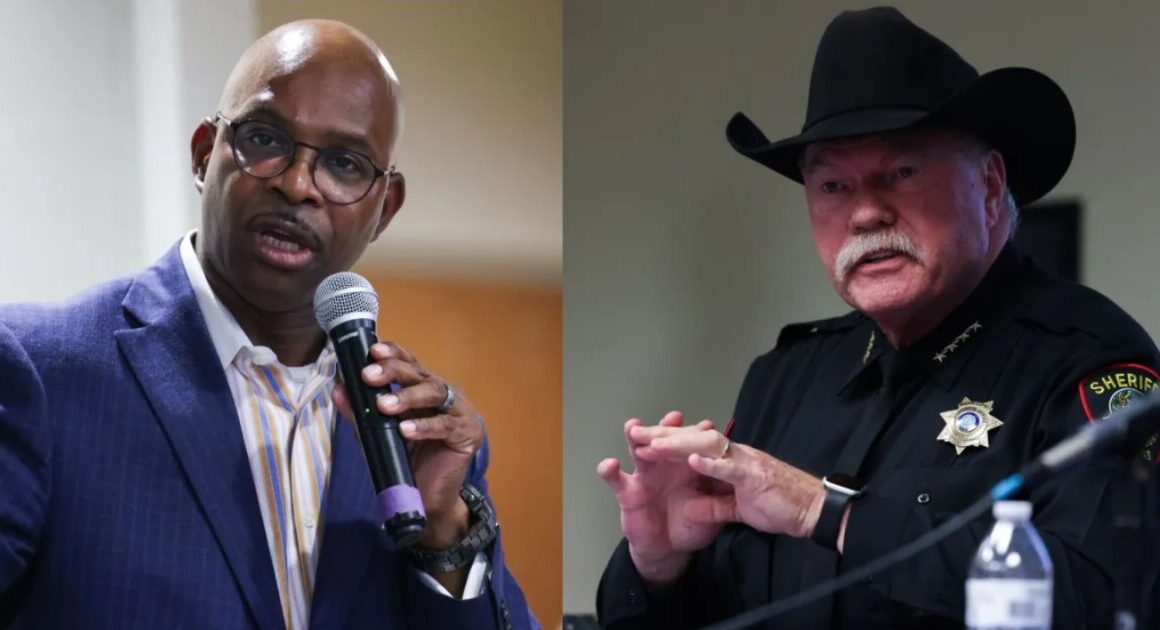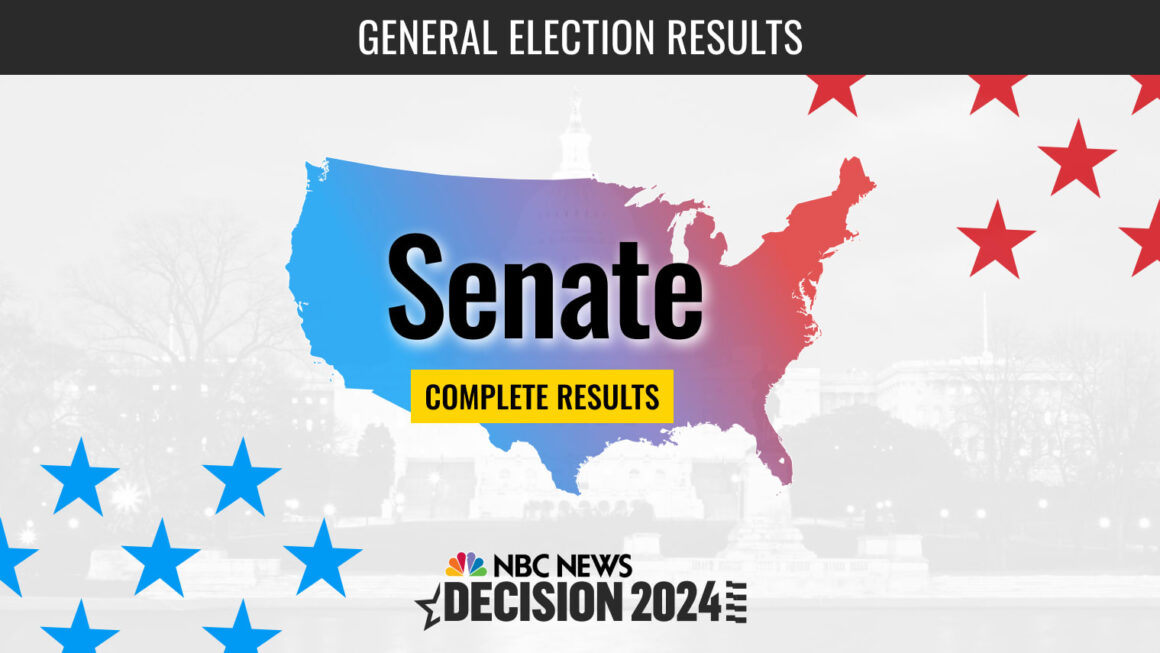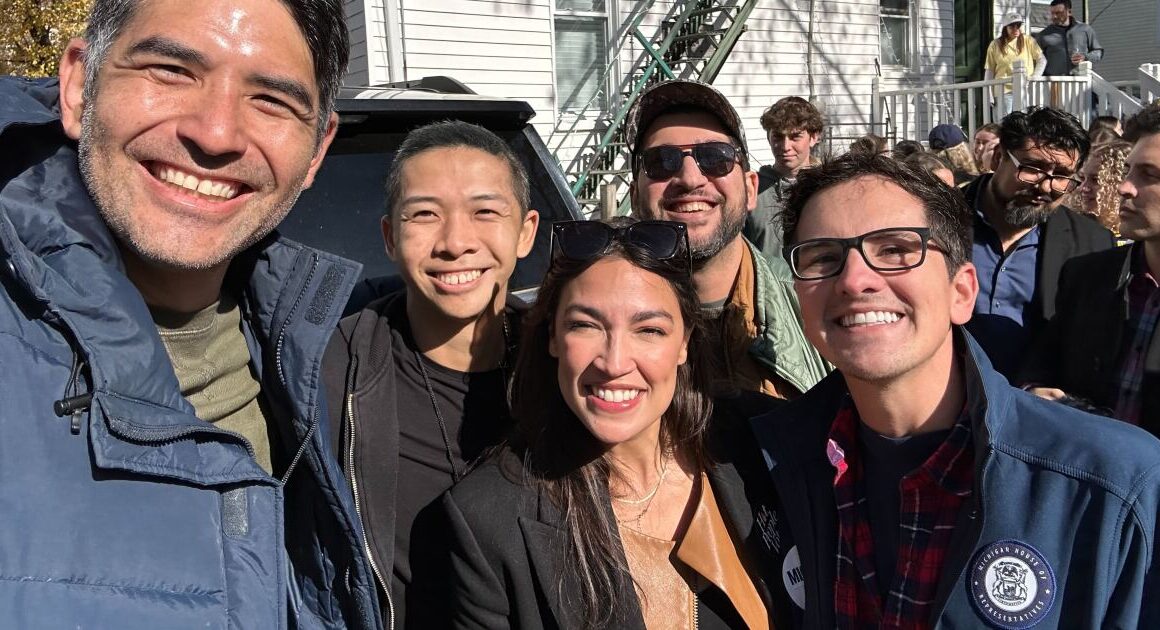
In the 2013 dystopian thriller “The Purge,” America observes a tradition wherein, once a year for a designated 12-hour period, all crime is permissible — up to and including murder. During the purge, society is rocked by spectacular violence, which is said to have a cathartic effect: It dramatically reduces crime and unemployment. “The Purge” provides audiences with a warning about the horrifying consequences of selective observation of morals and a world ruled by a “might makes right” ethos. But at a campaign rally in Pennsylvania on Sunday, former President Donald Trump effectively floated the idea as a good thing. Except in his spinoff version, the twist is that it’s only the cops who get to do what they want.
Trump’s vision of “one rough hour” echoes his rhetoric about being “dictator for one day.”
As he often has in the past, Trump complained at the rally that police are “not allowed to do their job” because of political pressure and that crime is rampant in President Joe Biden’s America as a result. (It is not.) And that’s when he proposed his “Purge”-esque solution: If police were allowed “one real rough, nasty” and “violent day,” he said, crime would be eliminated “immediately.” He was taken enough by the proposition that he returned to it later, saying, “One rough hour — and I mean real rough — the word will get out and it will end immediately, you know? It will end immediately.”
A Trump campaign official told Politico afterward that he was “clearly just floating it in jest.” And Steven Cheung, the Trump campaign’s communications director, told Politico that Trump has “always been the law and order president and he continues to reiterate the importance of enforcing existing laws.”
Let’s unpack a few things here. The Trump campaign’s “in jest” excuse should be dismissed. As I’ve written before, for the better part of a decade Trump has used a comic tone and “I’m just kidding” caveats to float trial balloons for his most extreme ideas.
Even though Trump obviously wouldn’t have the authority as president to permit the police to indulge in a day of extreme violence, that he’s articulating the idea in public at all is still significant — and corrosive. It signals an attitude toward police misconduct that helps to set the Republican agenda — at federal and state levels — on legislation related to police reform.
It could also affect the day-to-day culture of policing by emboldening police officers to act more aggressively when interacting with citizens. And it could more generally encourage Trump’s supporters to consider vigilantism and political violence as a way to address social problems. The latter is not a far-fetched, abstract concern, either, but a real, already-existing social phenomenon that could definitely get worse. In no context is it appropriate for a presidential candidate — much less a former or sitting president — to “joke” about law enforcement brutalizing the public, especially in a country plagued by police violence.
Cheung’s attempt to frame Trump’s authoritarian remarks as a reflection of his commitment to “law and order” is preposterous. Trump is suggesting that police should be able to operate outside the constraints of the law to achieve the social goal of reducing crime; in other words, suspending regular law to achieve order. And the worldview underpinning Trump’s preferred social order is, of course, reactionary — it’s about protecting the powerful and dominating those who challenge them.
The worldview underpinning Trump’s preferred social order is, of course, reactionary.
Trump’s vision of “one rough hour” echoes his rhetoric about being “dictator for one day” to crack down on illegal immigration and drill for oil wherever he wants. In both scenarios Trump invokes the threat of a crisis (surging crime or migration across the border) to legitimize the idea of extraordinary power (unconstrained executive power or police brutality) to achieve an end.
Trump tries to frame this as compatible with democracy and the rule of law by framing the exercise of that extraordinary power as temporary. This is, of course, a familiar playbook for autocratic leaders, who argue that crises require exceptions (ostensibly temporarily) to the rules to tackle them. But somehow the crises — and the special rules to solve them — seem to extend indefinitely. The reality is that rules are rules only because everyone follows them. Once you argue that you alone need an exception to the rule to govern, then you’re in effect arguing that you don’t believe in rules.
If Trump wins the White House again, would he be able to pursue a special police “purge”? Not through any conventional laws or institutions. But everything he’s said, especially since 2020, has made it clear that he’s interested in trying, and the courts and half of Congress seem willing to let him.
![]()




